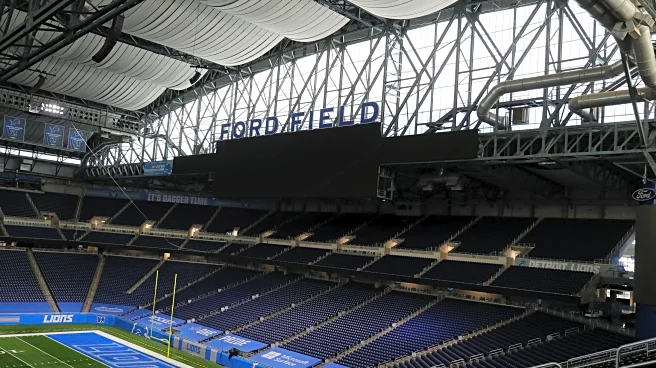What's Happening?
Junior's, a renowned New York restaurant, is celebrating its 75th anniversary. Founded by Harry Rosen in 1950, Junior's has become a staple in New York City, known for its iconic New York-style cheesecake.
The restaurant has been a place where New Yorkers from all walks of life come together, finding common ground over a slice of cheesecake. Over the years, Junior's has faced various challenges, including neighborhood decline, a devastating fire, and a cream cheese shortage. Despite these hurdles, the restaurant has expanded its reach with locations in Times Square and Las Vegas, and a large bakery in New Jersey. Junior's has been featured in films and television, and has remained a beloved institution in the city.
Why It's Important?
Junior's represents more than just a restaurant; it is a cultural landmark in New York City. Its ability to unite diverse groups of people over a shared love for cheesecake highlights the power of food in bridging divides. The restaurant's resilience in the face of adversity is a testament to its significance in the community. As gentrification changes the landscape of Brooklyn, Junior's stands as a reminder of the city's rich history and traditions. The continued success of Junior's also underscores the importance of maintaining cultural heritage amidst rapid urban development.
What's Next?
Junior's will continue to navigate the challenges posed by gentrification and urban development. The restaurant's commitment to its roots and community will be crucial in preserving its legacy. As the neighborhood evolves, Junior's may face decisions regarding expansion or adaptation to new market conditions. The restaurant's ability to innovate while staying true to its heritage will determine its future success. Additionally, Junior's may explore further opportunities to expand its brand and reach new audiences, both locally and nationally.
Beyond the Headlines
Junior's story highlights the broader implications of urban development and cultural preservation. As cities grow and change, maintaining historical and cultural landmarks becomes increasingly important. Junior's serves as a case study in balancing tradition with modernity, offering insights into how businesses can thrive while honoring their heritage. The restaurant's journey also reflects the challenges faced by family-owned businesses in adapting to changing economic landscapes. Junior's resilience offers lessons in entrepreneurship, community engagement, and the enduring appeal of cultural icons.











